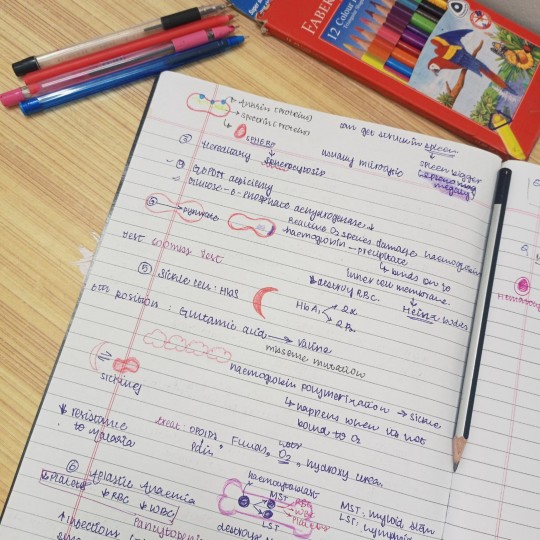#Happy Diwali to those who celebrate. I wish I was at home not bc we have a grand celebration but bc there were so many sweet shops :(((
Text


I miss my iPad so much, although it's nice to go back to pen-paper mode for note-taking for a while. There's barely any "good" YouTube channels for resources for Nursing School right? I'm following Ninja Nerd (which is for medical school) to clear my doubts up before Diwali vacations end.
🎧 : Would've Could've Should've
#Happy Diwali to those who celebrate. I wish I was at home not bc we have a grand celebration but bc there were so many sweet shops :(((#I'm tryna get as far ahead as possible#nursingblr#college studyblr#uni studyblr#heygather#heydilli#heypeachblossom#problematicprocrastinator#chazzastudiesalevels#noodledesk#studyvan#hiyatranquil#astudentslifebuoy#myhoneststudyblr#notes#study motivation#productivity#med school#original
137 notes
·
View notes
Note
this is gonna be a long-ish ask bc there's a LOT in Diwali, but I'll do my best to summarise!
So Deepavali, also called Diwali, is the festival of lights. Its when you will see people lighting rows of diyas (lights - candles) everywhere and bursting firecrackers and playing sparklers etc. Its also the Hindu New Year, and its celebrated on the night of the lunar calendar (new moon) which is called Amavasya (closest I can get the phonetic spelling in English script). This year, it happened on the 4th Nov, but celebrations usually last on the entire week of that night.
There are two main stories/beliefs of Diwali,
1. This is tied to the epic of the Ramayan, which is a story about the life and times of the King Rama (I'll leave you to find that out for yourself) but the link to Diwali is that on the darkest night of the calendar he finally returned to his kingdom of Ayodhya after 13+ (sources vary) years of exile along with his wife and brother and other followers. The people of Ayodhya were overjoyed for his return but they also worried that because of the darkness, he wouldn't be able to find his way home or recognise his kingdom (13+ years does something to one's memory) so they lit up all the houses and streets with rows of lights and bright colours so that he could find his kingdom.
2. The Goddess Lakshmi, the deity of wealth, is said to visit the house that is well lit and decorated with good offerings and sit there, which provides the family with wealth and prosperity for years to come
Essentially, with lighting diyas, cleaning and decorating your house, doing the proper worship and giving offerings is to invite good luck, wealth, and happiness into your home!
What my family does is a whole puja (worship) to primarily the deities Lakshmi (wealth, prosperity), Ganesh (overcoming troubles, prosperity), Vishnu (maintaining the order, making sure everything goes well, prosperity) and the nine deities of the nine planets. We also in addition to decorating and lighting up our house, go around giving gifts of sweets and dried fruit to our neighbours to endure good ties and relationships. After, (on a non-covid year) everyone goes out for a night of playing with sparklers, fireworks, bright lights etc. The lights are supposed to stay lit throughout the night, even with everyone asleep to ensure prosperity knows your house is participating and inviting it in.
Of course, the specific celebrations vary from region to region or even family to family, partly because there are so many of us Indians globally and also because Hinduism is one of (if not IS) the oldest religion in the world still practiced today. But I have provided the general to give you an idea.
Unfortunately, because of colonialism, a lot of our culture has been lost, erased or changed from what it used to be, and we are still suffering the effects today. For example, did you know, being queer/transgender was so widely accepted and normalised that there was a special group of transgender deities that were worshipped? Also, most of the Hindu deities are genderfluid (using the term bc its the one most people know). But anyways, my point is that I'm not entirely about the accuracy of the religion represented in the Spawn's curriculum and the respect it might be given in those textbooks (its a big part of our lives). I personally would recommend asking an actual Hindu-practicing person who is well-versed in the mythology in order to get your most reliable information about the festivals celebrated.
Thanks for asking me Simon, and I wish you well!
Thank you so much! What a lovely tradition! It seems to be very much about cleansing ones self of old ways and trying to establish new more balanced patterns. How wonderful!
I did actually know that bit about transgender in the culture. That was also true for parts of Africa and Southeast Asia also. The more I look into indigenous ideas of gender and sexuality, the more I learn how incredibly disgusting was the enforcement of Christianity’s binary notions about the universe. So very destructive. I never spent much time with the Jewish groups I met along the way, because they’re were always so ostracized, and to spend time with them was to invite scrutiny which I could not afford, so I never learned much about their traditions. It was only recently, here on tumblr, that several people told me about all the third genders that Judaism embraced historically. I had no idea, but it was very very good to learn. I truly have seen the Church as a particular adversary of mine, just from all I’ve seen, but o continue to learn more reasons to dislike where it has taken so much of the world.
Ah me. Anyway! Thank you so very much! I will go learn more about this. I am curious—would you consider this festival or holiday to be an open or closed practice. May people who aren’t Hindu celebrate it or should it be confined to faith?
34 notes
·
View notes